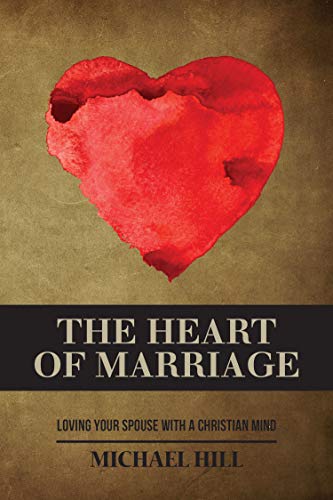
Keeping our marriages healthy: Part 1
Wise and practical advice from Keith and Sarah Condie.
‘Good relationships keep us healthier and happier.’1
That’s the finding from the longest study of human behaviour and health ever undertaken, the Harvard Study of Adult Development. It began in 1938 and continues to this day. More than 80 years of research can be summed up in that one key principle.
Notice that word, ‘good’. It’s significant. Another researcher, neuroscientist Lisa Feldman Barrett, captures its importance when she says, ‘The best thing for your nervous system is another human. The worst thing for your nervous system is another human.’2
The bottom line? The quality of our relationships has a profound impact upon our wellbeing and our ability to navigate the complexities of our lives under God.
This opens an important window into how we think about our marriages. We know that faithful commitment lies at the heart of biblical marriage. But simply honouring that promise doesn’t inevitably mean that the relationship will be enriching and do us good. Nor does it necessarily facilitate the outward-looking purpose of marriage: mutually supporting one another to strengthen our ability to serve God (see Genesis 2:15, 18).
Our marriages also provide our children with a foundation of relational and personal stability. But it’s not just the fact of our marriage, but the quality of it that benefits them. The kind of relationship we have with our spouse will become a model to our children of what is ‘normal’. So it’s important for us to keep striving towards the kind of marriage relationship we hope the next generation will seek out and enjoy—one that does them good and brings God glory.
A health check
So, how do we assess the health of a marriage? Is it possible to determine if your marriage is doing your nervous system good or not?
Authors Waldinger and Shultz provide some insights from the Harvard Study of Adult Development.3 Healthy, nurturing relationships will elicit feelings of warmth and comfort throughout your body. There will be a sense of deep connection between you, seen in sharing a moment of laughter or tears, or the feeling of love when your eyes connect across a crowded room and you exchange a smile. You will feel noticed and appreciated rather than taken for granted. Positive interactions such as these tell our bodies we are safe; they calm our arousal levels and increase our sense of wellbeing.
The opposite could be said for relationships that are not healthy. You will feel disconnected. You will wonder whether your spouse is really on your side, as their radar seems to be constantly scanning for what you are doing wrong, and they are repeatedly critical. Perhaps it will feel like you are walking on eggshells as you are never quite sure what reaction awaits. Such negativity elicits a stress response in our body. We react as if there is danger present and we need protecting. Sadly, many couples can normalise these feelings of stress and be unaware of the impact it is having on their physical and emotional health, and for that matter, the wellbeing of their children.
Yes, the quality of our marriage matters. And the sense of wellbeing and safety that is highlighted by the psychological research is also illustrated in Scripture. We get a beautiful glimpse of God’s design for a healthy marriage in Genesis 2:25:
‘Adam and his wife were both naked, and they felt no shame.’ (Genesis 2:25)
A deep intimacy exists between the man and woman who are naked and unashamed. It’s a picture of being able to share one’s heart—of feeling safe to be open about deep vulnerabilities. It’s about being loved and held and supported.
To have a marriage like this takes time and effort. It means slowing down and putting other things aside to invest in each other. Our culture is big on efficiency, but relationships don’t work by efficiency. As the saying goes, we are human beings, not human doings.
So, if we want our marriage to be as God intended, we will need to devote ourselves to the things that keep us well connected and be willing to work at changing patterns that may be pulling us apart. To put a romantic spin on it (not!), marriages are a bit like cars—they need care, attention and time. They need regular maintenance and tune-ups.
Let’s get practical: what does this look like? We’ll share some more ideas in our next article, but for now, let’s focus on the importance of some small habits.
Small, important habits
John Gottman has been researching marriages for nearly half a century. As a mathematician, he was keen to find out why some marriages last the distance while others don’t. He has found that the small things couples do to connect and communicate their love for each other are very significant. In particular, he noticed that couples with well-functioning marriages had built some key habits into their lives. He called the habits he identified the ‘magic six hours’, a relatively small investment of time each week that yielded a substantial return.4 We’ve added a habit of our own (the first one) that makes a real difference in our marriage.
1. Pray together for each other every day.
2. Each morning, find out what is happening in your spouse’s day and make sure you say goodbye to each other.
3. Have a ‘catch up on the day’ conversation each workday.
4. Find some way every day to communicate genuine affection and appreciation toward your spouse.
5. Show each other physical affection (kissing, touching, hugging, etc.) when you’re together. Make sure you kiss each other before going to sleep at night.
6. Have a weekly ‘special connect time’ for just the two of you—a relaxing, low-pressure way to stay connected. Ask each other open-ended questions that enable you to stay up-to-date with each other’s lives.
These sorts of simple activities help maintain a healthy relationship.
Just like cars, marriages also benefit from regular tune-ups. Why not commit to working through our marriage enrichment course (see below) together? You will learn how to build ‘little things every day’ into your marriage, which will be good for your relationship, your children, and your church and wider community.
This is the first of three articles on marriage. Coming soon are:
- Keeping our marriages healthy: Part 2
- Supporting a friend in a difficult marriage.
---
Building a Safe & Strong Marriage is a five-session Christian online course, drawing upon the wisdom of the Bible and some significant marriage research. You can work through the course at your own pace from the comfort of your home. No need to organise babysitters or go out! The video content is interspersed with couple exercises where you have the chance to talk together and apply what you’re learning to your own marriage.
---
Sarah and Keith are Co-directors of the Mental Health & Pastoral Care Institute. The Institute is a program of Anglican Deaconess Ministries (ADM), a ministry that inspires and empowers Christian women to bring the love of Jesus to a hurting world through education, compassionate ministries, community, and public gospel witness. Sarah and Keith have developed a Christian marriage enrichment course Building a Safe & Strong Marriage. This course has been run by many churches. Couples can work through the course independently from home online.
Footnotes
[1] R Waldinger & M Schulz, The Good Life: Lessons from the World’s Longest Scientific Study of Happiness, p. 10.
[2] L Feldman Barrett, Seven and a Half Lessons About the Brain, p. 93.
[3] In their book, The Good Life: Lessons from the World’s Longest Scientific Study of Happiness (Simon & Schuster, 2023).
[4] See J Gottman & N Silver, The Seven Principles for Making Marriage Work, pp 277ff.

The Heart of Marriage
The Heart of Marriage integrates the biblical material on marriage with great insight and clarity. At the heart of marriage is godly other-person-centred love and service, good leadership, faithfulness and a one-flesh view of sex that God designed to be a taste of heaven to come.
For more articles from Growing Faith, subscribe to our monthly e-newsletter.
To hear about the latest books and resources from Youthworks Media, subscribe here.








